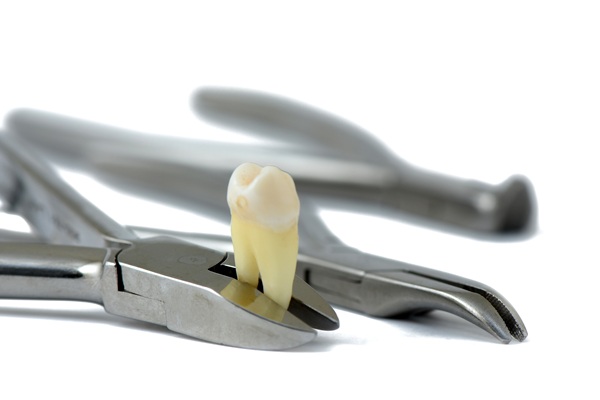The Difference Between Simple and Surgical Tooth Extraction
While preserving natural teeth is always recommended, are sometimes necessary to restore and preserve oral health. Depending on the complexity of the case, a general dentist or oral surgeon may recommend either a simple or surgical extraction. Understanding the differences between these two approaches can provide clarity and peace of mind when preparing for a procedure.
When do you need a tooth extraction?
Dental providers perform tooth extractions when a tooth becomes too compromised to be saved or when leaving it in place causes further complications. For example, severe decay that reaches deep into the tooth structure can lead to persistent pain and infection, making extraction the most effective solution when a filling or root canal is no longer viable. Similarly, gum disease can loosen the teeth by weakening the supporting gum tissue and jawbone; therefore, the provider may need to extract such teeth as part of the patient's gum disease treatment.
One of the most common types of tooth extraction dental providers perform is on impacted wisdom teeth. Impaction means that a tooth does not have enough room to erupt above the gumline properly. This condition can lead to pain, swelling, and potential damage to adjacent teeth, often necessitating extraction.
Other reasons for tooth extraction include significant trauma, fractures, or non-healing infections that render a tooth beyond repair. A thorough examination from a dental provider can reveal whether extraction is necessary and, if so, what treatment option best supports long-term oral health and function.
Types of tooth extraction: Simple vs. surgical extractions
Tooth extractions are classified as either simple or surgical, depending on the complexity of the procedure. Simple extractions are for visible teeth that are relatively intact and allow the provider to remove them without making incisions in the gum tissue. A general dentist typically carries out the procedure using local anesthesia, loosening the tooth before carefully pulling it. Recovery is usually quick and involves minimal discomfort. This approach is commonly used for mildly decayed teeth, baby (primary) teeth that have not fallen out naturally, or teeth removed for orthodontic treatment.
Surgical extractions are more complex, as they are necessary when a tooth is broken at the gum line or impacted beneath the surface. They are often needed for impacted wisdom teeth, severely broken teeth, or cases with extensive root damage that the provider cannot restore. An oral surgeon or dentist with advanced training performs the procedure, using pain management techniques for patient comfort. They will make incisions into the gums to access the tooth, which they may section into smaller pieces for easier removal. Recovery can take several weeks, although the patient should be able to return to work or school within 48 to 72 hours.
Which option is right for you?
A simple extraction is often sufficient for cases where the tooth is fully visible and intact. However, a surgical approach may be necessary when a tooth is broken, impacted, or embedded deep in the jaw. Factors such as pain tolerance, the presence of infections, and existing dental conditions also influence the decision. A dental provider can offer a personalized recommendation based on a patient's specific needs and dental health history.
Get more info in a consultation
Both simple and surgical tooth extractions can help restore oral health. Consulting with a general dentist or oral surgeon allows for a detailed assessment and a discussion of your treatment options. Contact Inna Goykman-Amir DDS to schedule your consultation today.
Request an appointment here: https://www.myddsny.com or call Inna Goykman-Amir DDS at (718) 416-6364 for an appointment in our Brooklyn office.
Check out what others are saying about our dental services on Yelp: .
Related Posts
If you need a tooth extraction, you probably wonder if your regular dentist can perform the extraction or if the procedure will need to be done by an oral surgeon. The answer to this question depends on several factors and should be determined on a case-by-case basis. Read on to understand the different factors that…
The patient does not feel any discomfort during wisdom teeth extraction, but there is a recovery period after treatment. It is important to follow proper aftercare instructions to reduce the risk of an oral infection, recover faster and keep pain, swelling and bleeding to a minimal level.After wisdom tooth extraction, patients should follow all the…
A Wisdom Teeth Extraction is a procedure that not a lot of people look forward to. However, these procedures are done in order to avoid future complications such as pain, overcrowding or crookedness, which makes them worthwhile in the end. Wondering when to get a wisdom tooth extraction? There are some scenarios that may make…
An emergency dentist provides urgent care for individuals experiencing sudden dental issues that require immediate attention. Understanding what qualifies as a dental emergency can help patients determine when to seek professional help. While some dental problems may seem urgent, others can be addressed with routine care. Whether due to a sudden injury, severe pain, or…


